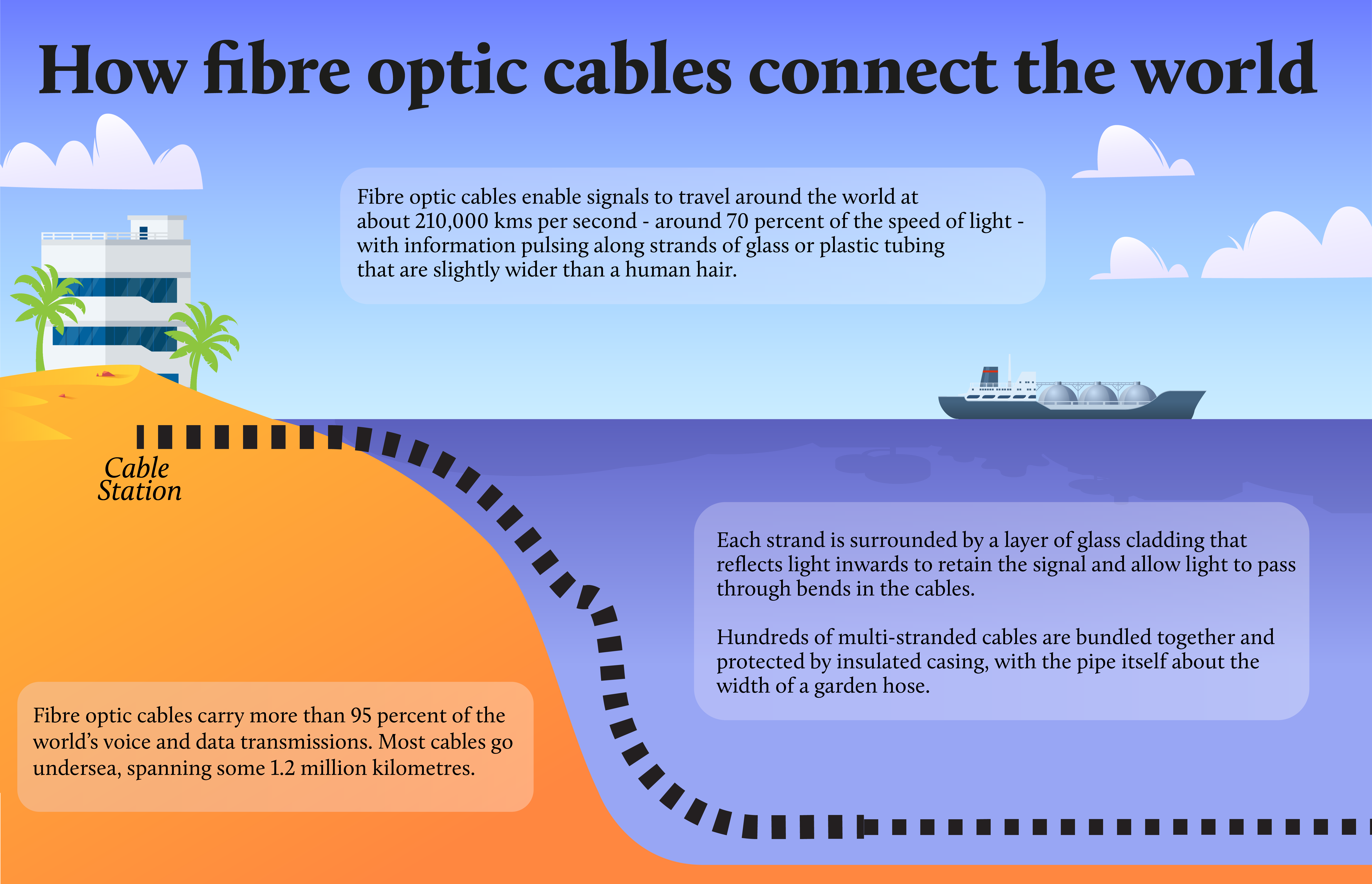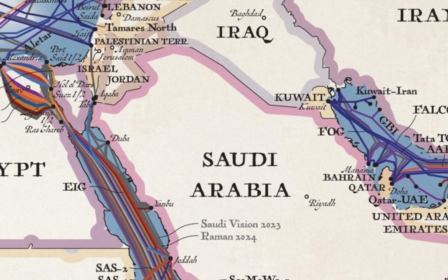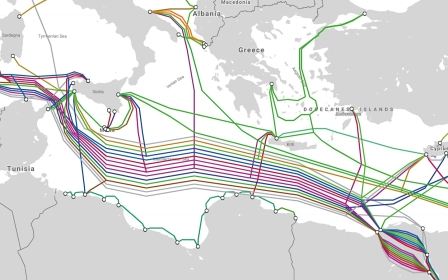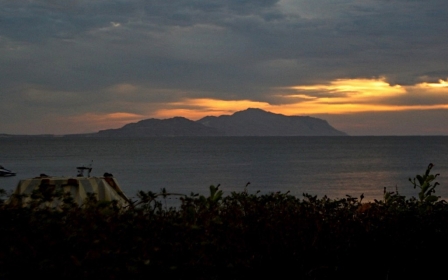Red Sea underwater cables 'cut' disrupting global internet traffic
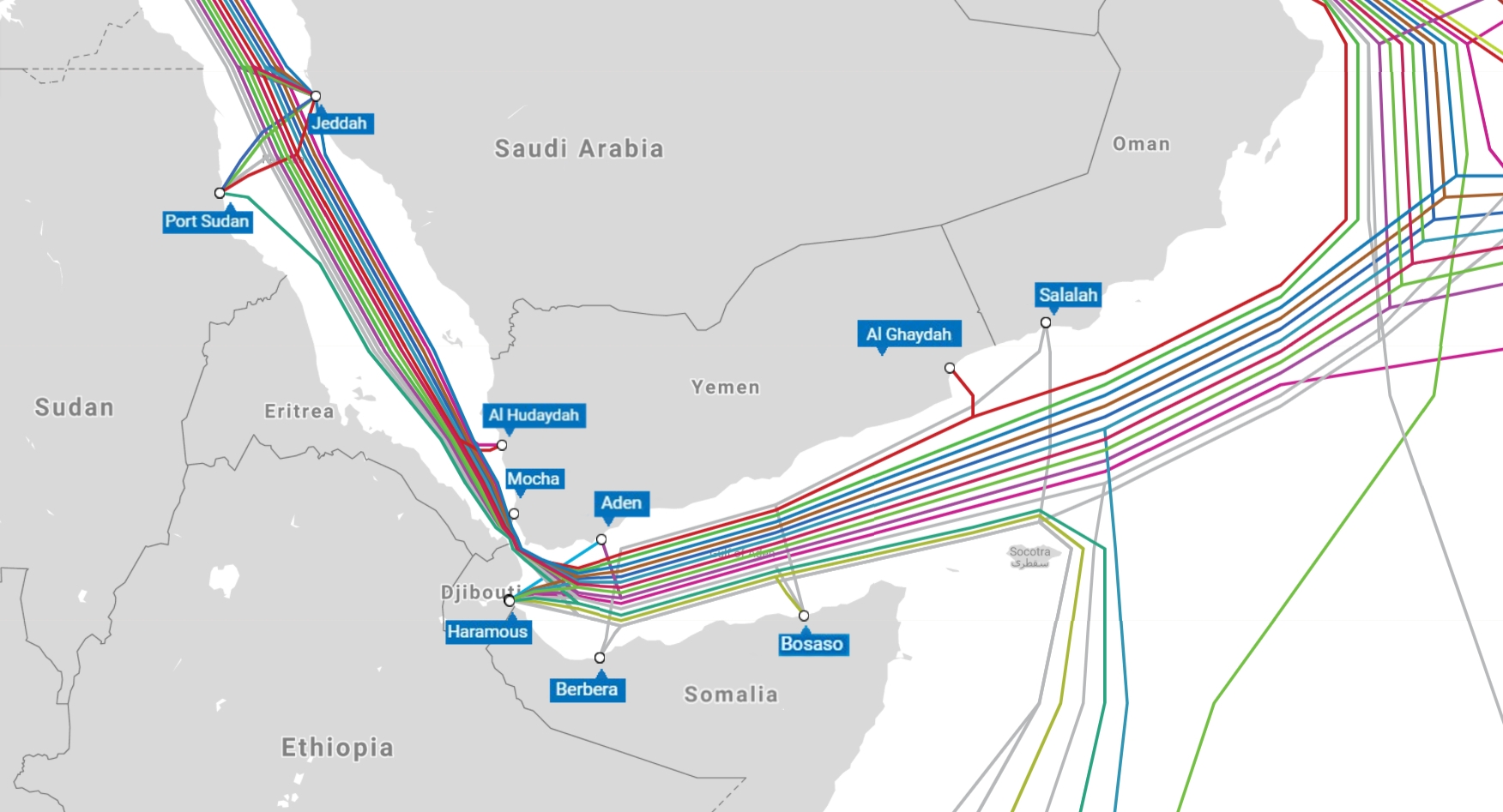
Undersea cables in the Red Sea have been cut causing “significant” damage to global telecommunications networks, according to Hong Kong telecoms company HGC Global Communications.
The firm reported damage to four undersea cables that had disrupted a quarter of the traffic between Asia, Europe and the Middle East.
The company said in a statement that it is rerouting traffic to minimise disruption for customers and “extending assistance to affected businesses".
While HGC did not say who was responsible for the damage, the report comes after the Yemeni government warned that the Houthis could target the cables, following the publication of a map of the cables on a Houthi-linked Telegram channel.
Israeli news outlet Globes alleged that the Houthis were responsible for the damage, but the movement's leader, Abdel Malek al-Houthi, refuted these claims, saying: “We have no intention of targeting sea cables providing internet to countries in the region."
New MEE newsletter: Jerusalem Dispatch
Sign up to get the latest insights and analysis on Israel-Palestine, alongside Turkey Unpacked and other MEE newsletters
Meanwhile, the Yemeni government has blamed the British and US military for the damage. In a statement, it said that it was "keen to provide all necessary facilities to get such submarine cables repaired and maintained".
The expanding network of undersea cables in the Red Sea has given western signals intelligence agencies unprecedented access to the region’s data and communications traffic.
Spy agencies have tapped into fibre-optic cables to intercept vast volumes of data, from phone calls to the content of emails to web browsing history and metadata.
Financial, military, and government data also passes through cables.
The Houthi movement, also known as Ansar Allah, has risen to global prominence for its attacks on commercial and military shipping, in response to Israel's invasion of Gaza.
One of the Houthis' first acts in November was the seizure by helicopter of the Galaxy Leader, a Bahamas-flagged commercial vessel owned by Israeli business tycoon Rami Ungar.
Since then, the Houthis have broadened their attacks from vessels linked to Israel to commercial and military ships with any ties to the US and the UK, in response to US-led air strikes against the group.
Middle East Eye delivers independent and unrivalled coverage and analysis of the Middle East, North Africa and beyond. To learn more about republishing this content and the associated fees, please fill out this form. More about MEE can be found here.


